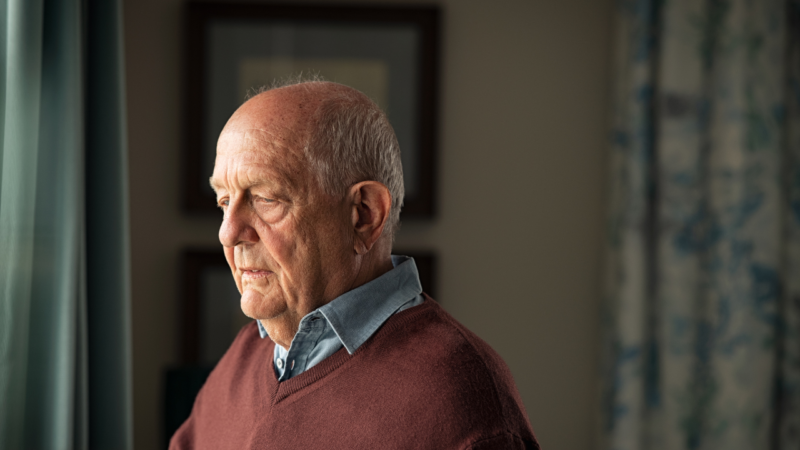The fear of falling is a common concern voiced by older people.
Simply put, a fear of falling is an ongoing concern about falling that limits the undertaking of daily activities.
In fact, roughly one-third of people who are elderly develop a fear of falling. This anxiety can feel like a protective mechanism but, studies show that having a fear of falling actually increases a person’s risk of falling.
So, what can be done?
The good news is – lots! In this article, we will outline some of the common causes of a fear of falling, four things that Aussie seniors can do to manage their fear of falling and see how to simply assess fear of falling with just a pen and paper.
Common causes of a fear of falling
The most frequent causes of a fear of falling that I hear day to day include a previous fall or the news of a friend or neighbour experiencing a fall resulting in a broken bone and a hospital trip.
With more than one in four people aged 65 and over experiencing a fall in Australia every year it’s not surprising that seniors develop a fear of falling.
As a thought experiment, imagine if one in four of your friends, at least once a year, had a volleyball fly out of a passing car and hit them on the head. You may expect them to be a little skittish around cars and perhaps seek to avoid them altogether. You may even find yourself keeping an extra eye on passing cars and trying to avoid the main roads when you can.
The point is – it is important to not dismiss this fear of falling as something silly or unimportant.
Instead, validate the elderly person’s concern and partner up to seek help.
Four things that can help
Below are four things that research has shown to be effective in managing falls risk:
1) Exercise
Regular exercises (such as the Otago exercise program, or home physiotherapy) have been shown to dramatically reduce falls, even up to 30%. Physiotherapists have the skills to assess seniors for motor problems, sensory impairments, environmental hazards, fear of falling, and to assess how people complete activities of daily living.
2) Vision Assessment
Issues with vision can impact a person’s ability to maintain their balance and interact safely with their environment. Poor vision may also be an indicator of other conditions that may require further treatment, so getting a vision assessment done can be a helpful way to prevent falls.
3) Environmental Assessment and modification (better outcomes if completed by a health professional)
Often falls can be reduced or prevented by simple changes to the environment. This is particularly helpful in homes. For example, installing a motion-activated light in the corridor on the way to the bathroom or securely fitting rugs to the floor. The self-report Home FAST fall risk assessment tool is an assessment tool designed for use by older people and their carers. It provides an easy way of identifying risks that need to be dealt with to stay safe from falls at home. A link to this resource can be found at the end of the article.
4) GP Review and Case Management
A GP is able to assess for a range of health conditions and assist with the management of medications. They are also able to refer people to a range of other sources including any mental health support that may be beneficial to manage the anxiety around falling. For the best outcomes for your elderly Mum or Dad, coordination of care between all health care professionals is paramount.
How to assess fear of falling with just a pen and paper
If you are wondering if your elderly Mum or Dad is experiencing a fear of falling, and to what extent they may be experiencing it, this short questionnaire is available for free online in multiple languages.
It is called the Falls Efficacy Scale International (or the FES-I for short). The FES-I is a list of 16 activities and a person is asked to rate how concerned they are that they might fall if they did this activity from 1-4. The scores are then totalled to indicate a person’s fear of falling.
[ For a copy of the FES-I please see the end of the article ]
Here is an example of the type of question that is asked in the FES-I below:

Fear of falling is a common concern amongst older people. However, there are a range of things that can be done to reduce someone’s fear and risk of falling and ultimately improve their quality of life.
To get your loved one started on their fall prevention journey please contact our friendly support office.
Article written by Emily Johnson (TPC Physiotherapist – Sydney)
LINKS
Additional references:
BMJ Best Practice – Assessment of falls in the elderly
Yang, Y., Wang, K., Liu, H., Qu, J., Wang, Y., Chen, P., Zhang, T., & Luo, J. (2022). The impact of Otago exercise programme on the prevention of falls in older adult: A systematic review. Frontiers in Public Health, 10. https://doi.org/10.3389/fpubh.



 1300 797 793
1300 797 793